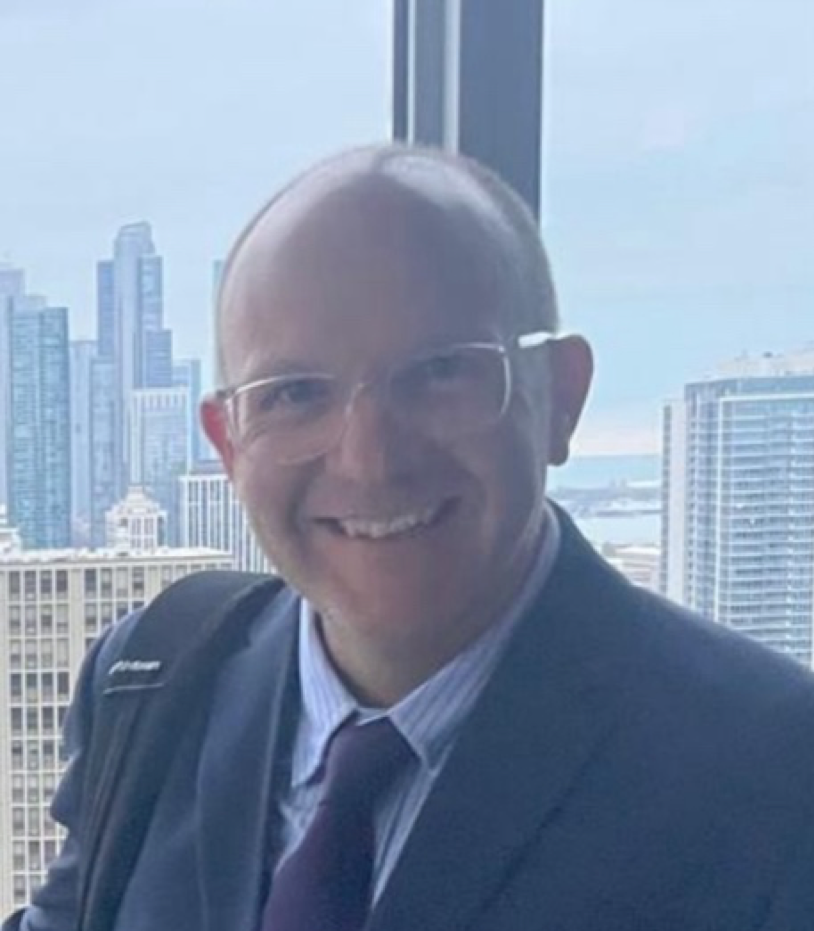Adriano R. Tonelli1, Jin Ye Yeo2
1Department of Pulmonary, Allergy, and Critical Care Medicine, Respiratory Institute, Cleveland, OH, USA; 2CDT Editorial Office, AME Publishing Company
Correspondence to: Jin Ye Yeo. CDT Editorial Office, AME Publishing Company. Email: editor@thecdt.org
This interview can be cited as: Tonelli AR, Yeo JY. Meeting the Editorial Board Member of CDT: Dr. Adriano R. Tonelli. Cardiovasc Diagn Ther. 2024. Available from: https://cdt.amegroups.org/post/view/meeting-the-editorial-board-member-of-cdt-dr-adriano-r-tonelli.
Expert introduction
Dr. Adriano R. Tonelli (Figure 1) was valedictorian of his medical school class at the University of Cuyo, Mendoza, Argentina. After graduation, he finished his training in Cardiology at Universidad Favaloro, Buenos Aires, Argentina before moving to the United States. He completed his Internal Medicine residency at Michigan State University, Lansing, Michigan, followed by a Pulmonary and Critical Care fellowship at the University of Florida, Gainesville, Florida. He is board-certified in Internal Medicine and Pulmonary and Critical Care Medicine. In addition, Dr. Tonelli completed a Master’s in Science at Case Western Reserve University as part of his KL2 NIH sponsor training. His research interests include the non-invasive and invasive diagnosis of patients with pulmonary vascular diseases, as well as the identification of biological tools to identify key pathophysiological abnormalities that will help personalize treatment in pulmonary hypertension.

Figure 1 Dr. Adriano R. Tonelli.
Interview
CDT: What drove you into the field of cardiology, and subsequently focus your research on pulmonary hypertension?
Dr. Tonelli: My career path is unusual, as I initially trained in cardiology in Argentina at the Favaloro Foundation and then transitioned to pulmonary critical care when I came to the USA. I initially chose cardiology because of the great admiration I had for Dr. Rene Favaloro, who developed the coronary artery bypass grafting (CABG) surgery during his time at Cleveland Clinic.
CDT: Could you provide a brief overview of the current publications in pulmonary hypertension? Are there any articles that stood out to you?
Dr. Tonelli: This year we had a new release (7ᵀᴴ) of the consensus statement by the World Symposium on Pulmonary Hypertension (PH). The consensus statement provides a detailed review of current knowledge and future directions in the field of PH.
CDT: What are recent advancements in non-invasive diagnosis techniques for pulmonary vascular diseases? How have they impacted your practice?
Dr. Tonelli: The main advances are related to a variety of right ventricular parameters (measured by echocardiography or cardiac magnetic resonance imaging) that could be incorporated into our risk scoring tools, which traditionally include WHO functional class, six-minute walk distance, and NT-pro brain natriuretic peptide. We now approach the patient more comprehensively regarding risk stratification, which is essential to inform on the severity and prognosis of PH as well as guide treatment decisions.
CDT: What are some of the challenges/research gaps in the management of perioperative pulmonary hypertension?
Dr. Tonelli: We have limited prospective research in perioperative PH, since most of our knowledge comes from retrospective case series with their inherent bias. There is still a lot to learn on how to adequately manage PH patients in the perioperative period, to prevent and treat complications.
CDT: Moving forward, what do you think should be the research direction to bridge the gaps and overcome the challenges?
Dr. Tonelli: Every study we design or participate in needs to provide a leap forward to accrue critical knowledge to better understand how we diagnose and treat cardiovascular diseases. It is particularly important to be able to better understand the pathophysiology of the disease in each patient with the goal of personalized treatments. Treatment personalization will maximize efficacy, reduce costs, and minimize side effects.
CDT: What are your hopes for the future of cardiovascular medicine?
Dr. Tonelli: The future is here. We are entering an era of exponential growth driven by the extraordinary new investigational tools we have at our disposal. We have seen and will see a drastic and rapid improvement in the way we diagnose and treat cardiovascular diseases.
CDT: How was your experience as an Editorial Board Member of CDT?
Dr. Tonelli: My experience as an editorial board member of CDT has been very rewarding, as I participate in the review of great research with the possibility of providing suggestions with the goal of enhancing the data presented. The CDT editorial team is amazing since they follow strict guidelines and have extensive expertise that will make the paper the best it can be.
CDT: As the Editorial Board Member, what are your expectations for CDT?
Dr. Tonelli: My expectation is the journal will continue to grow and be recognized as one of the best in the field of cardiovascular medicine.
